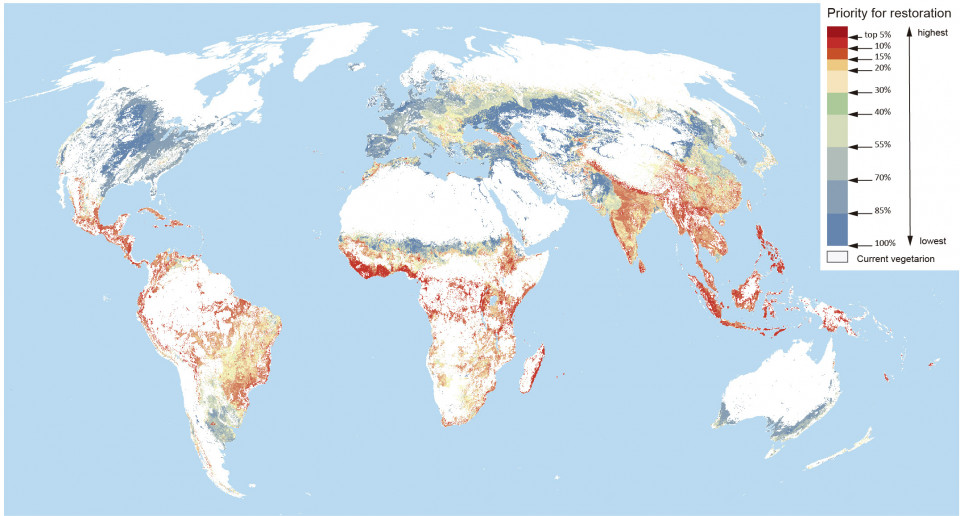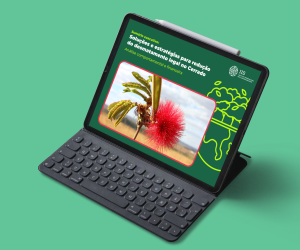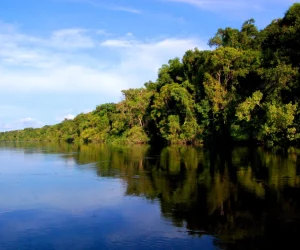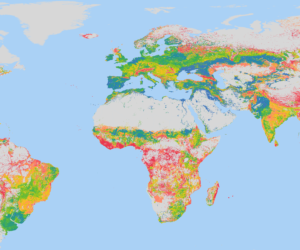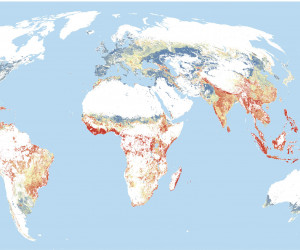Publications > Article
Nature: Global priority areas for ecosystem restoration
Extensive ecosystem restoration is increasingly seen as central to conserving biodiversity and stabilising the Earth’s climate. Although ambitious national and global targets have been set, global priority areas accounting for spatial variation in benefits and costs have yet to be identified. This study develops and applies for the first time a multicriteria optimisation approach that identifies priority areas for restoration across all biomes and estimates their benefits and costs. It found out that restoring 15% of converted lands in priority areas could avoid 60% of expected extinctions, potentially saving 320 thousand species, while sequestering 299 GtCO2, or 30% of total CO2 increase in the atmosphere since the industrial revolution. Including multiple biomes is key to achieving multiple benefits, and cost-effectiveness can increase up to sevenfold with optimised multicriteria spatial allocations. The results confirm the vast potential contributions of restoration to global challenges while underscoring the necessity of pursuing these goals synergistically.
